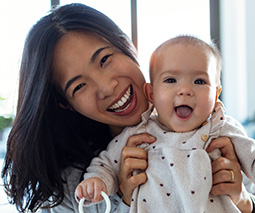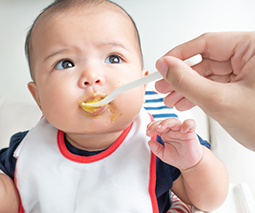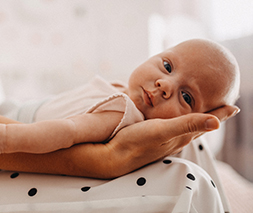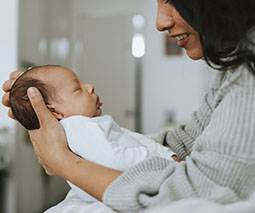Busted: 7 baby milestone myths you can ignore
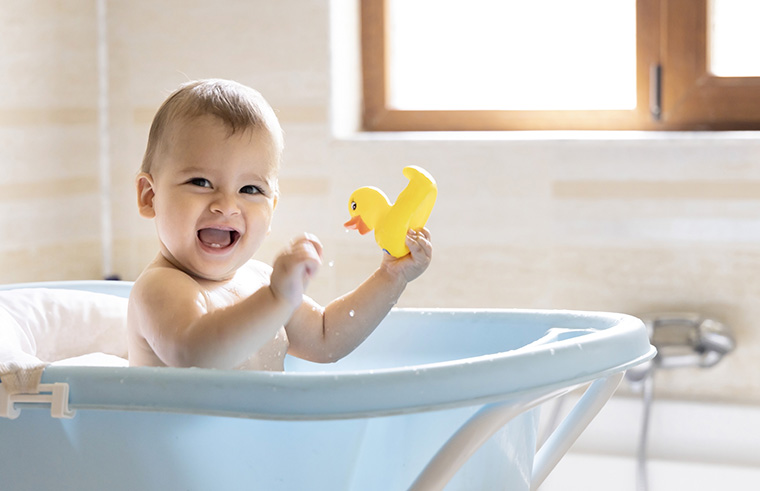
Seeing your baby learn, grow and meet new milestones is one of the greatest pleasures of being a parent. But sometimes it can seem like your baby is never going to reach that next stage of development, or that they’ve already reached it – like their first smile – and everyone is telling you it’s not possible.
We looked at seven baby milestone myths with AHPRA registered nurse and Baby Sleep Consultant Hannah Myers, to weed out the facts from the fiction.
Myth 1: Your newborn can’t smile – it’s just gas
You may have heard that babies don’t show ‘real smiles’ – social smiles that indicate they’re engaging with you – until they’re around two months old. However it is possible that your baby is mimicking your smile even in the first 36 hours after birth.
Smiling with your newborn is great for emotional bonding, so you can go ahead and smile at your baby as often and as much as you like – chances are they really are smiling back at you too – and not just because they have gas.
Myth 2: Babies develop at similar rates
“One of the biggest myths is that babies develop at similar rates,” says Hannah. “But that’s simply not true.” Milestone guidelines can be helpful for checking your baby’s progress but each baby develops at their own unique pace.
“Try not to compare your baby to other babies,” Hannah suggests. “As mums we tend to compare our bubs, but your child is their own unique individual. Your baby will meet their milestones in their own time.”
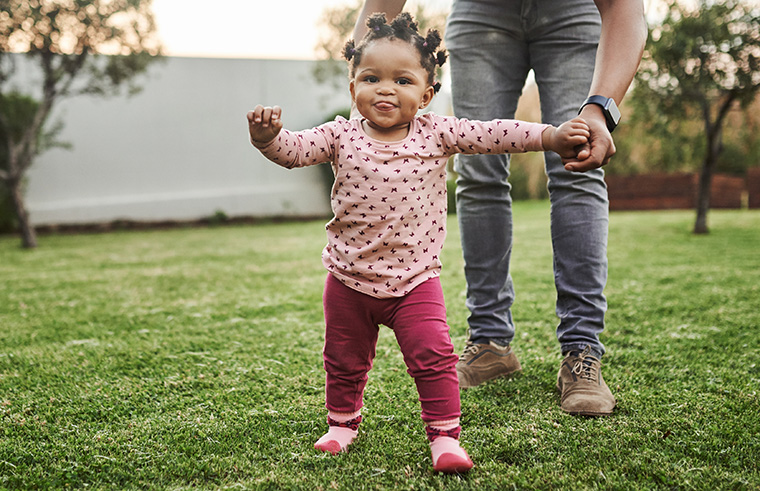
Myth 3: Early walkers will be more athletic
On average, children take their first step at around 12 months but some children don’t start walking until 17 months and this is completely within the ‘normal’ range of development. If you’re concerned about your baby’s gross motor skills, by all means see your GP. But whether your child takes their first steps at 10 months or 16 months is unlikely to be an indicator of their future athletic prowess.
Myth 4: Gifted children start speaking earlier
Gifted children can start talking earlier than average. Some parents note that their gifted child started speaking at nine months of age. But gifted children can also be late talkers, not speaking until they’re over two. Often these late talkers are quietly observing the world around them and when they do start speaking, they come out using speech in full sentences.
As speaking later can also be a signal that your child could benefit from assistance, it’s worth keeping an eye on your child’s language development. But rest assured the ‘typical’ range to start speaking is broad. On average, children say their first word between 10 and 15 months.
Myth 5: Classical music will make your baby smarter
You may have heard that exposing your baby to the strains of Mozart will boost their intelligence. Mozart may be pleasant to listen to, but it won’t make your baby hit any of their milestones earlier. When your child is older, learning a musical instrument can help their fine and gross motor skills, support sensory development and enhance their hand-eye coordination.
Myth 6: Sleeping through is a milestone
While rolling, sitting, standing, crawling, walking and talking are developmental milestones – sleeping through the night without waking is not. Some babies are naturally ‘good’ sleepers while others are not, just like adults. After six to eight months of age, babies can learn to sleep through without a milk feed – often with much effort on your part – and this is a milestone.
Hannah says, “The ability to sleep through the night has many contributing factors such as the need for night feeds, how your baby is resettled, and whether your baby is in a consistent day routine that supports lengthy night sleep. As you can see, these factors will vary from baby to baby and family to family – so don’t view sleeping through as a milestone; instead view it as a goal that you and your baby will meet when you’re both ready.”
Myth 7: Practice makes perfect
“One of the biggest myths is that if you think your baby’s not quite physically ready to do something, like crawling, you should keep pushing them,” says Hannah. “Encouragement is great but you don’t need to turn yourself inside out trying to make it happen – just give your baby lots of floor play and it will happen organically.”
To let your baby play freely, try putting a play mat on the floor like the Bright Starts Easy Breezy Prop Mat so they can happily engage in free play and have the opportunity to reach, grasp and move in their own time.
This is a sponsored post by BIG W, where you can find everything you need for pregnancy, baby and beyond.
